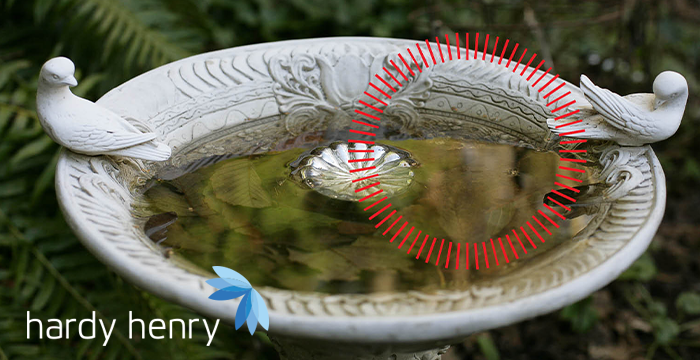Some mosquitoes are a nuisance for leaving itchy, red and bumpy bites on us while others are a carrier for some of the world’s deadliest diseases, such as dengue, chikungunya, yellow fever, Zika and West Nile virus. They are also responsible for parasitic infections such as filariasis and malaria
World Mosquito Day is observed on the 20th of August every year following the discovery in 1897 by Sir Ronald Ross that female mosquitoes transmit malaria between humans. Since then, we are all too aware of its devastating effect: as per the World Health Organisation, every two minutes, a child dies of this preventable and treatable disease and each year, more than 200 million new cases of the disease are reported.
Reduce the Risk
Can you protect your home and family from mosquito bites? The answer is yes. Below are a few tips to help prevent mosquitoes from entering your property and reduce the risk of bites.
Encourage natural predators: Creatures that eat mosquitoes include birds, frogs and tadpoles, turtles, dragonflies and spiders. If you have a garden pond, add some goldfish as they will eat mosquito larvae.

Eliminate any standing water: Empty out anything that can trap water, such as the following items.
- Children’s toys
- Flowerpots
- Pool liners
- Used tyres
- Wheelbarrows
- Recycling containers
- Overturned bin lids
- Birdbaths
- Barrels and buckets
Once these items are emptied out, overturn them, if possible, to prevent them from collecting water in the future. Remember to also clean and empty pet water dishes regularly.
Mosquito-proof your home: Install insect screens on the windows and doors of your home. Check for and seal any openings to prevent mosquitoes from coming inside. Keep doors closed, when possible, to prevent access to your home – particularly between the hours of dusk and dawn and reduce outdoor lighting at night. Cover your beds, where and when appropriate, with insecticide-treated mosquito nets at night to reduce the risk of being bitten. This is especially true in malaria and dengue zones of the world.
Maintain hygiene in your garden: As mosquitoes like resting in leafy areas during the day to avoid the heat and harsh sunlight, cut and trim surrounding grass and bushes to prevent mosquitoes from resting near your property and on the building.
Protect yourself
Dress in light-coloured and loose-fitting clothing: Studies indicate that some mosquito species are more attracted to dark clothing and readily bite through tight-fitting clothes. Where possible, wear loose-fitting long sleeves and trousers to keep your arms and legs covered.

Use mosquito repellents: For full protection, use a mosquito repellent but choose the right one: while many ‘natural’ repellents are found in the marketplace, their ability to protect you effectively is minimal as they do not usually provide adequate repellency for the duration of time most humans need while outdoors.
Effective mosquito control involves identifying, preventing and minimising mosquito breeding sites. While the above tips can help to protect your home from mosquitoes, calling an expert is your best bet.
For more facts and information about mosquito-borne diseases and the threat they represent for the world, check out this in-depth article by our partner Rentokil.

